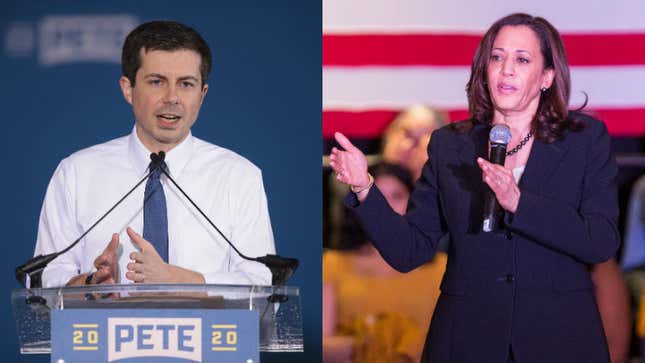

During a CNN Town Hall earlier this week, Senator Kamala Harris was asked if people in prison should have the right to vote. Harris responded that, “I think we should have that conversation.” But less than 24 hours later it seemed at least part of that conversation had already happened: “Do I think that people who commit murder, people who are terrorists, should be deprived of their rights? Yeah, I do,” Harris said during an event in New Hampshire the next day. “I’m a prosecutor, I believe that in terms of, there has to be serious consequence for the most extreme types of crimes.”
At the same CNN town hall this week, Pete Buttigieg was also asked about incarcerated people’s voting rights. His response was more frank: “No, I don’t think so.”
The room filled with applause:
“Part of the punishment when you are convicted of a crime and you’re incarcerated is you lose certain rights,” Buttigieg said. “You lose your freedom. And I think during that period it does not make sense to have an exception for the right to vote.”
-

-

-

-

-

-

-

-

-

-

-

-

-

-

-

-

-

-

-

-

-

-

-

-

-

-

-

-

-

-

-

-

-

-

-

-

-

-

-

-








































